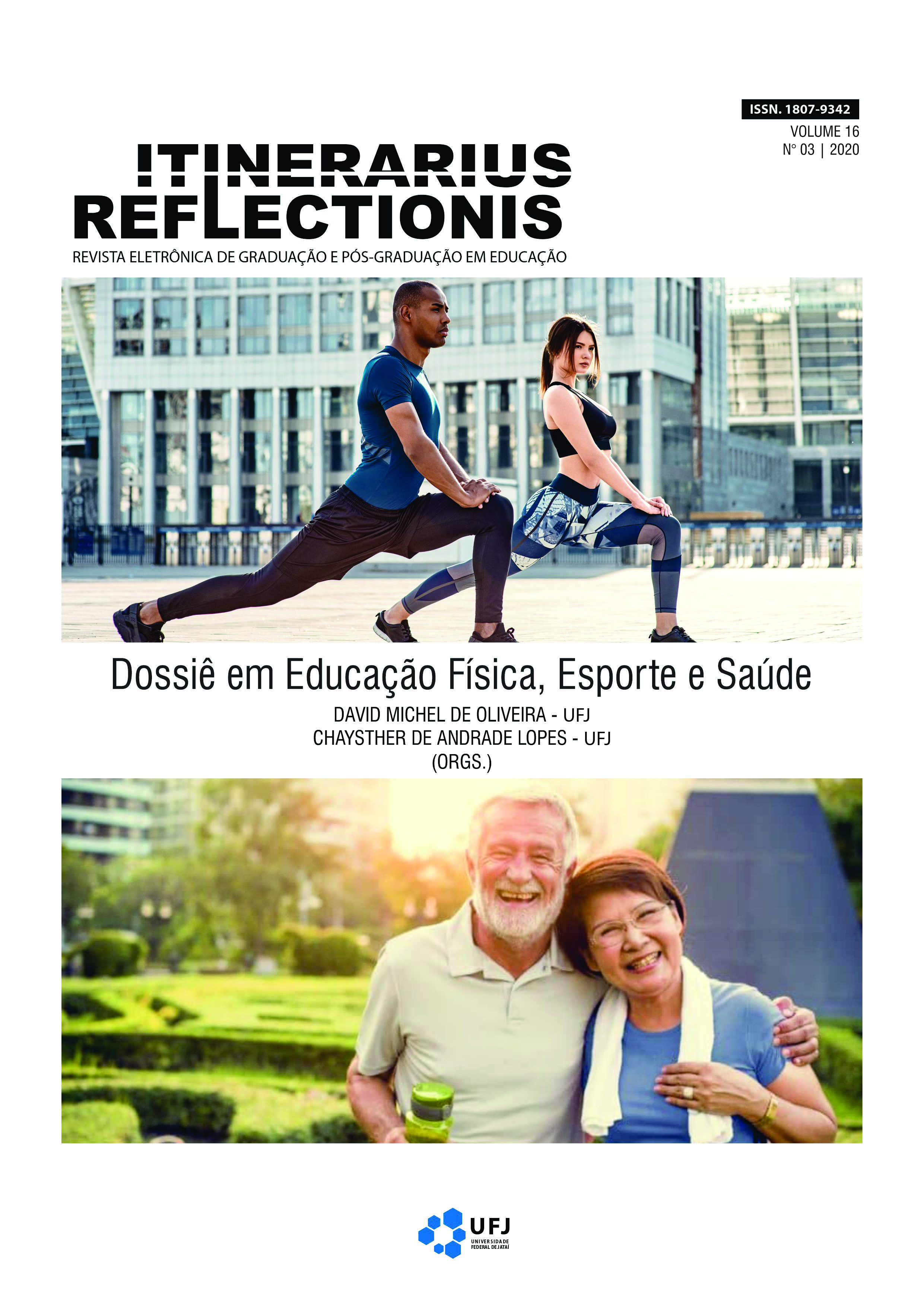Obesidade e sedentarismo no ensino médio: uma proposta de intervenção nas aulas de Educação Física
DOI:
https://doi.org/10.5216/rir.v16i3.57359Abstract
This research, has taken as goals to systematize and develop a proposal for intervention which would help high school students to critically reflect about the topics of obesity and sedentarism. Participants in this interventive research, that is, students from a second-year high school class, who attended a school from the public state network, in a medium-sized municipality located in the state of São Paulo countryside. Pedagogical praxis was grounded on the theoretical perspective of the critical-overcoming approach in Physical Education. As methodological procedures, in the first moment, scientific research data were presented, leading them to reflect on the construction of social inequality in the Brazilian context and the impacts on the appropriation process of food and physical exercise by the working class. Subsequently, the concepts of obesity and sedentarism were presented in the theoretical perspective assumed. Afterwards, the Well-Being questionnaire was applied, in addition to carrying out the measurement of the students' Body Mass Index (BMI), with the aim to problematize them. Results pointed out that students opt for foods rich in calories and poor in nutrients, foods that are harmful to health. Few are those who have at least five meals a day. A small portion, frequently, performs physical activities. Such data, as well as the concepts of obesity and sedentarism, were contextualized, based on a critical reading of historical, social and cultural determinants that exert influences in this process. Mostly, because students' arguments, when grounded on common sense, are consistent with the logic of exclusive blaming and accountability, due to the health condition they currently have, as well as that of their families. Keywords: School Physical Education. Obesity. Sedentarism.
Downloads
Downloads
Published
How to Cite
Issue
Section
License
Os artigos encaminhados para publição na revista ITINERARIUS REFLECTIONIS deverão ser originais e não publicados ou propostos para tal fim em outra revista. Aceitam-se artigos escritos em Português, Espanhol e Inglês. A revista ITINERARIUS REFLECTIONIS se reserva o direito de efetuar, nos originais, alterações de ordem normativa, ortográfica e gramatical, com vistas a manter o padrão culto da língua, respeitando, porém, o estilo dos autores. As provas finais não serão enviadas aos autores. Texto sobre Copyright do conteúdo da Revista.


